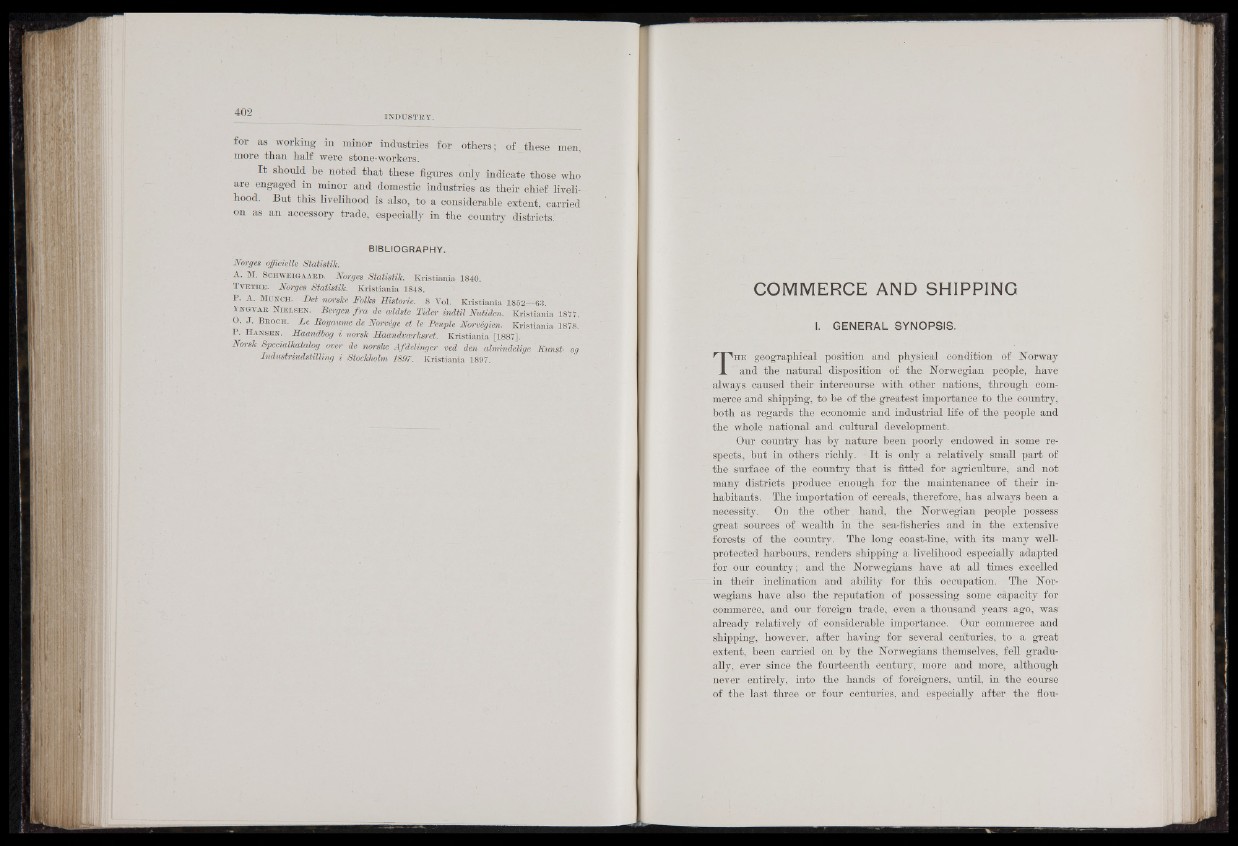
INDUSTRY.
for as working in minor industries for others ; of these men,
more than half were stone-workers.
I t should be noted that these figures only indicate those who
are engaged in minor and domestic industries as their chief livelihood.
But this livelihood is also, to a considerable extent, carried
on as an accessory trade, especially in the country districts.
BIBLIOGRAPHY.
Norges officielle Statistik.
A. M. S c h w e i g a a r d . Norges Statistik. K r is tia n ia 1840.
T v e t h e . Norges Statistik. Kristiania 1848.
P . A. Mu h c h . Det norske. Folks Nistorie. 8 Yol. K r is tia n ia 1852 63.
Yn g v a r N ie l s e n . Bergen f r a de aaldste Tiäer indtil Nutiden. Kristiania 1877.
O. J . Br o c h . L e Boyaume de Norvège et le Peuple Norvégien= Kristiania 1878.
P. H a n s e s . Naandbog i norsk Haandværksret. Kristiania. [1887].
Norsk Specialkatalog over de norske Afdelinger ved dm almindelige Kunst- og
Industriudstilling i Stockholm 1897, K r is tia n ia 1897.
COMMERCE AND SHIPPING
I. GENERAL SYNOPSIS.
Th e geographical position and physical condition of Norway
and the natural disposition of the Norwegian people, have
always caused their intercourse with other nations, through commerce
and shipping, to be of the greatest importance to the country,
both as regards the economic and industrial life of the people and
the whole national and cultural development.
Our country has by nature been poorly endowed in some respects,
but in others richly. I t is only a relatively small part of
the surface of the country that is fitted for agriculture, and not
many districts produce enough for the maintenance of their inhabitants.
The importation of cereals, therefore, has always been a
necessity. On the other hand, the Norwegian people possess
great sources of wealth in the sea-fisheries and in the extensive
forests of the country. The long coast-line, with its many well-
protected harbours, renders shipping a livelihood especially adapted
for our country; and the Norwegians have at all times excelled
in their inclination and ability for this occupation. The Norwegians
have also the reputation of possessing some capacity for
commerce, and our foreign trade, even a thousand years ago, was
already relatively of considerable importance. Our commerce and
shipping, however, after having for several ceifturies, to a great
extent, been carried on by the Norwegians themselves, fell gradually,
ever since the fourteenth century, more and more, although
never entirely, into the hands of foreigners, until, in the course
of the last three or four centuries, and especially after the flou